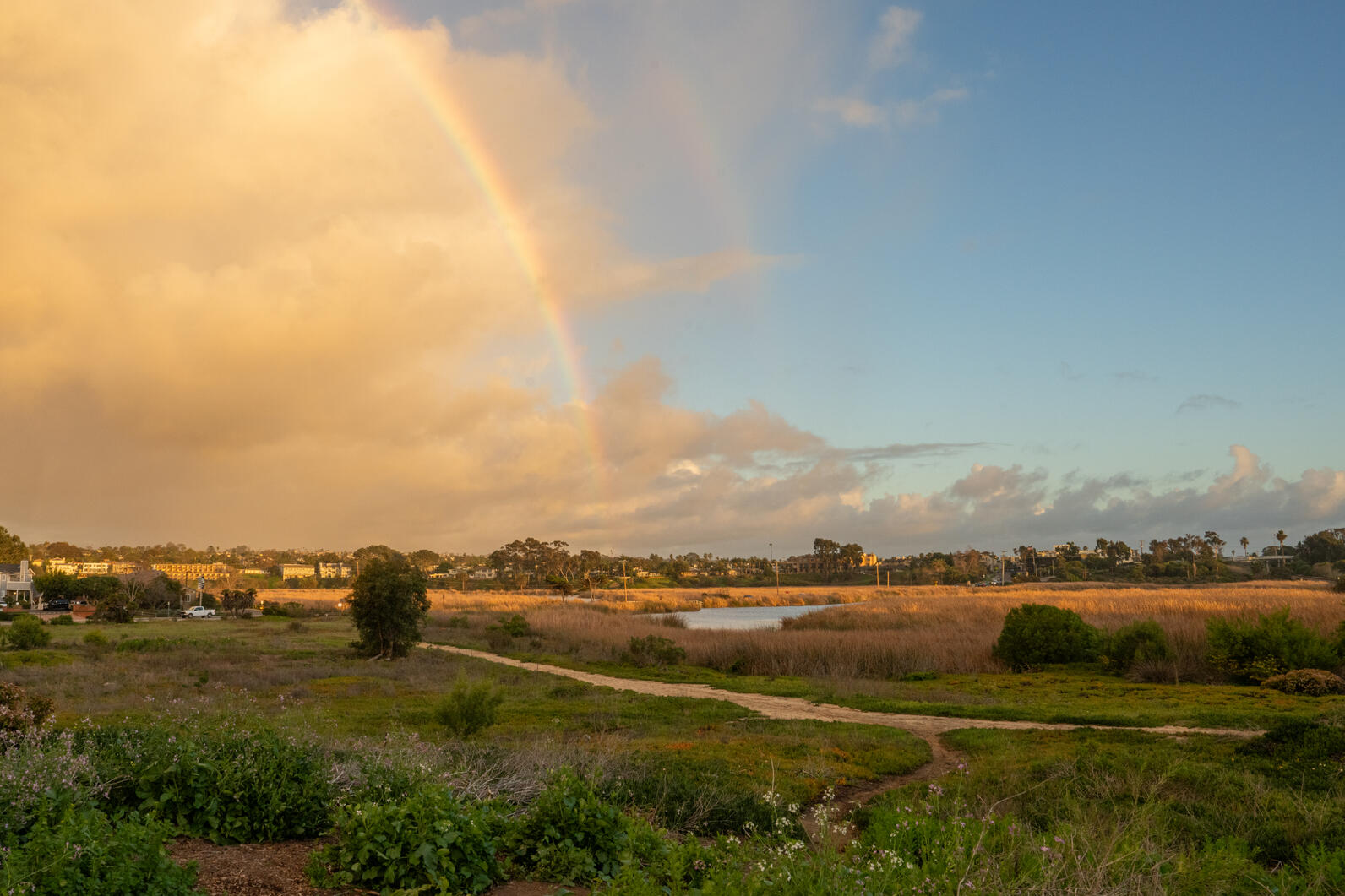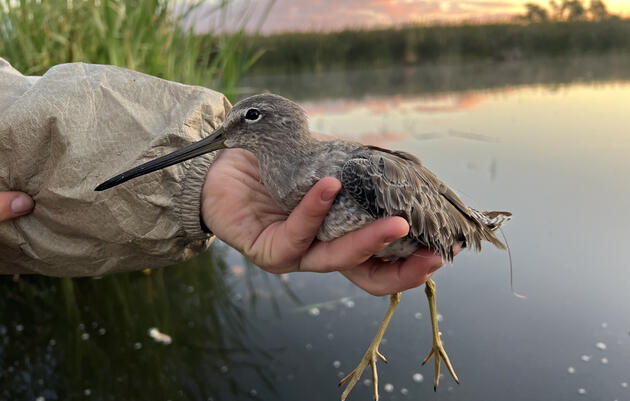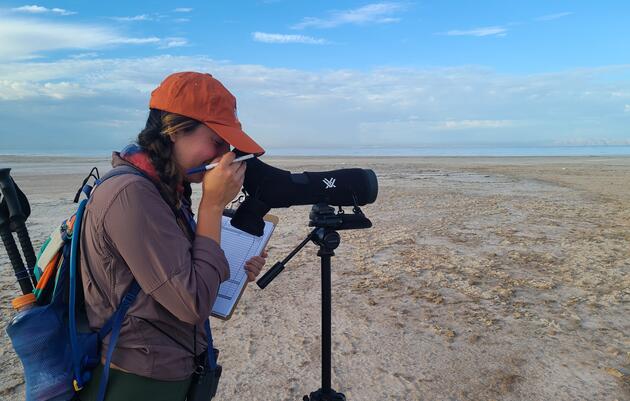Across the diverse landscapes of California, reliable access to water is often an existential issue of survival. Sustainable water management is critical to the future of the state, for numerous vulnerable communities, and in the preservation of some of our most endangered bird habitat.
The Sustainable Groundwater Management Act (SGMA) was enacted to ensure sustainable groundwater supplies for communities, the environment, and other users. However, without proper and additional implementation safeguards, SGMA is on course to deprive small communities of essential water supply and destroy the last remaining wetlands.
AB 828 offers a measured and reasonable approach to protect safe and clean water accessibility for all California communities and safeguard the dwindling managed wetland acreage.
California Assembly Bill 828:
Audubon California and Clean Water Action are proud to co-sponsor Assembly Bill (AB) 828, authored by California State Assemblymember Damon Connolly, which passed the Assembly on January 29th and heads to the Senate, one step closer to the Governor’s desk.
As noted in his remarks on the Assembly Floor, Assemblymember Connolly (D – San Rafael) emphasized, “AB 828 protects small community water systems and managed wetlands, which make up less than 2% of the groundwater use in the Central Valley, from pumping reductions and fines under the Sustainable Groundwater Management Act (SGMA) to ensure that vulnerable communities and wildlife have safe and affordable water supplies.”
AB 828 will allow small community water systems serving a disadvantaged community and managed wetland to continue to pump their average annual groundwater use between 2015-2020 without being subject to allocations by a GSA. Any usage above that average will still be subject to regulation by a GSA. AB 828 also exempts these users from fees on groundwater pumping unless usage is above average. These protections sunset on December 31, 2027.
What is the Sustainable Groundwater Management Act (SGMA) and how does it impact communities and migrating birds?
Nearly 85% of Californians depend, in whole or in part, on groundwater for their public water supply. Small water systems (fewer than 3,300 connections) are also most likely to depend on a single source for their water supply, leaving them acutely vulnerable to drought or over pumping by their neighbors. These small communities also face affordability challenges, as they lack the economies of scale needed to address technical managerial and financial issues related to running a public water system.
Managed wetlands are of special concern because California has lost over 90% of its historic wetlands, resulting in steep population declines of migratory birds on the Pacific Flyway. These declines are projected to worsen due to ongoing habitat loss and climate change. Managed wetlands provide essential habitat for birds and other wildlife, and along with flooded agricultural fields, support 60% of California’s migratory birds. They also offer a host of public benefits including water quality improvement, flood protection, opportunities for scientific research, and recreational and economic opportunities throughout the state.
Under SGMA, high and medium-priority groundwater basins must create Groundwater Sustainability Agencies (GSAs) to locally plan and regulate groundwater to prevent over-drafting and bring their basins into balance.
SGMA requires a GSA to consider the interests of environmental users and small drinking water systems in Groundwater Sustainability Plans (GSPs). However, these plans come up short in several important ways as found in a study of 108 GSPs:
-
Most GSPs did not thoroughly identify managed wetlands and small water systems serving disadvantaged communities, or their water needs.
-
Most GSPs did not analyze impacts from GSA management actions on those users.
-
Several GSPs propose a one-size-fits-all cap on groundwater allocations, cutting supplies for small community water systems and managed wetlands at the same rates as agricultural users.
-
This approach will deprive some small communities of access to safe and affordable water and will cause some of the state’s last wetlands to go dry.
-

Conservation in Jeopardy:
Ellen Wehr, General Counsel for Grassland Resource Conservation District in Merced County, an area that contains both public wildlife refuges and conservation easements for wildlife habitat, testified in support of the AB 828 in both Assembly Water, Parks, and Wildlife and Assembly Appropriations committees, sharing that, “Overall, we’ve lost 3 billion birds in North America since 1970, due to loss of habitat like wetlands. We will lose even more in the face of climate change and continued habitat loss. We cannot afford to lose any of our remaining wetland acres if we want to stabilize bird populations, maintain biodiversity, and provide recreational opportunities.”
Wehr continued, “Two years ago our district started receiving calls from wetland managers in other basins because groundwater allocations were already cutting off access to water for wetlands, and we expect this problem will grow. Other wetland owners are also receiving bills for thousands of dollars a year. These wetland stewards told us they will not be able to maintain their habitat if SGMA continues to be applied this way. Without swift action, our state will face a rapid and significant loss of wetlands where their protection is most desperately needed.”

Conclusion:
If California leaders do not act now, small community water systems and critical managed wetland habitat will run dry. We cannot stand idle as SGMA fails to protect the most vulnerable. Failing to pass AB 828 leaves communities unable to rely on access to safe drinking water and critical habitat in danger of disappearing. As climate change increases weather extremes and groundwater resources continue to dwindle, we must urge our elected leaders to safeguard communities’ access to clean drinking water and ensure decades of public investment in managed wetland habitat is not lost.
Audubon California urges you to contact your state representatives and ask them to support Assembly Bill 828 to ensure the bill is passed into law. In the coming months AB 828 will be heard in the Senate Natural Resources & Water and Senate Appropriations committees before it is transmitted to the Senate Floor. Sign up for Audubon California’s newsletter for updates.
Audubon thanks Assemblymember Damon Connolly for his steadfast commitment to safeguarding clean drinking water in communities that continue to be left behind, and for his work to protect the 5% of historic wetlands left in California to support millions of migratory birds and many other wildlife species that depend on them.
If you have any questions please contact Mike Lynes, Policy Director, at mike.lynes@audubon.org.






